Election: How do Ohio voters feel about abortion rights, legal marijuana? It's complicated
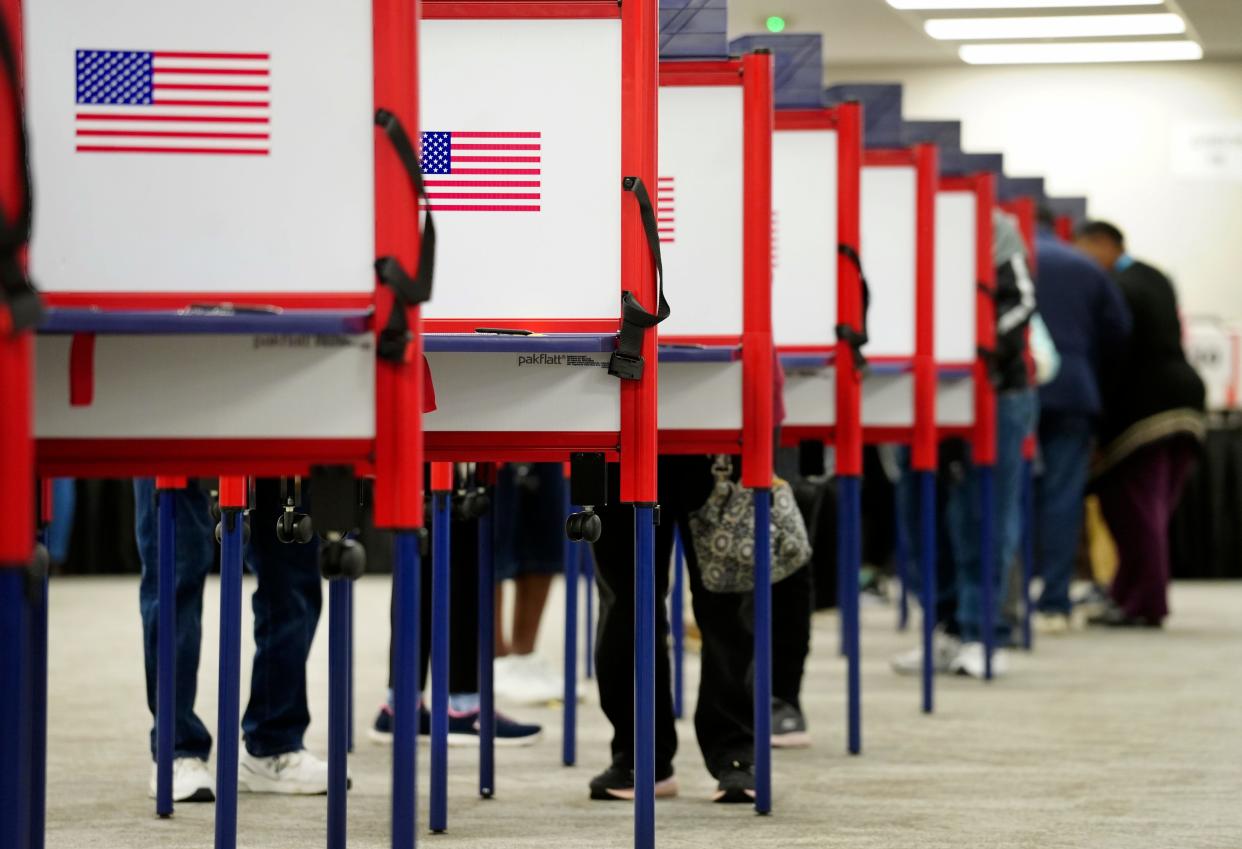
The eyes of the nation are on Ohio as voters decide the future of abortion and marijuana in the state on Tuesday.
Ohio Issue 1 would enshrine access to abortion, contraception and other reproductive choices in the state constitution. Even if approved by voters, state lawmakers and courts could later limit abortion after viability, which is about 24 weeks gestation. After that point, doctors could perform abortions to save a pregnant patient's life or health.
Ohio Issue 1: What you need to know about November ballot issue on abortion
Ohio is the seventh state to vote on abortion access since the U.S. Supreme Court overturned Roe v. Wade in June 2022, sending decisions about abortion policy back to state lawmakers, judges and voters. Abortion rights backers have won in the first six states. Ohio, an increasingly Republican state, is the latest battleground.
Ohio Issue 2 would legalize and tax recreational marijuana for adults 21 and older.
Ohio Issue 2: What Ohioans need to know about November ballot issue to legalize recreational marijuana
Reporters from the USA TODAY Network Ohio asked voters around the state where they stand on the two hot-button social issues, offering some insight into how the Nov. 7 election might play out.
Ohio Issue 1: A fight over who decides reproductive choices
Kyle Long rubbed the back of his wife, Beth, as they stood outside the Franklin County Board of Elections in Columbus telling the story of their daughter’s death – once again. Kyle held an umbrella over Beth’s head as the rain started to pour. His wife wore heart-shaped earrings that read: “Keep abortion legal. Keep abortion safe.”
The Longs, of Columbus, had an abortion in Pittsburgh in January 2023 after their daughter, Cordelia Poppy “Star” Long, developed Limb Body Wall Complex, a serious fetal anomaly that left all of her organs – except her heart – growing outside her body.

The couple traveled to Pennsylvania to avoid a $20,000-plus bill in Ohio because their state health insurance wouldn't cover the procedure. Now pregnant again, Beth and Kyle said their "yes" votes are significant.
“It’s important for us to make sure that nobody else here in Ohio has to go through what we went through,” said Kyle Long, who is featured with his wife in a pro-Issue 1 ad.
Three days later, it was raining again. Sharon Bronson, of Madisonville, knocked on doors in the Columbus suburb of Dublin. She wore a red “Protect Women Ohio Action” shirt and held a marked-up version of the ballot language and flyers that read: “No child should be forced to make this decision alone.”
“Do you think parents need to know what’s going on with their children?” Bronson asked one neighbor.
“Absolutely,” he replied.
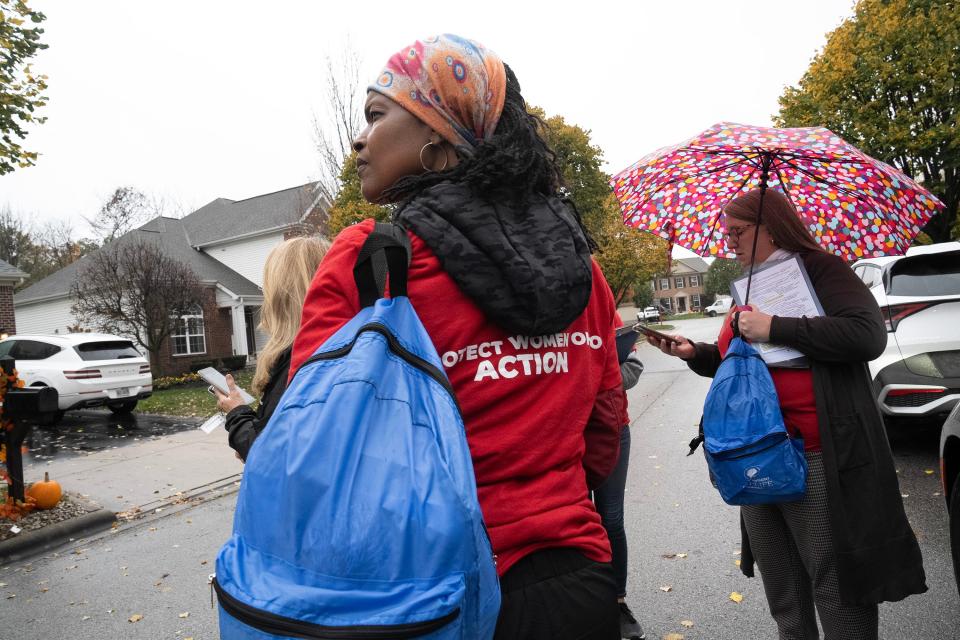
A few doors down, Stephanie Van Meter said she opposes Issue 1 because "it goes too far and it doesn't protect children, parents and vulnerable adults. The language is too broad."
Polling indicates most Ohioans support some access to abortion, with a Baldwin-Wallace University poll indicating 58% of likely voters favor Issue 1. Opponents are appealing to voters concerned that the measure is too far-reaching.
Steve Bullock, 67, of Lebanon, said he worries about Ohio's requirement that parents consent to minors' abortions − an issue not expressly addressed in the amendment, but something opponents say could be impacted by the language.
"I don't think minors should be making those kinds of decisions on their own," he said. "I think they should be guided by their parents."
Nancy Dubina, 68, of Canton agreed, saying she voted against Issue 1 "because it says every individual has the right to carry out one's own reproductive decisions. That means any age, including minors."
Kelly Monegan, 54, of Deerfield Township in Northeast Ohio, said "there should be some limitations," such as restricting abortion after 20 weeks.
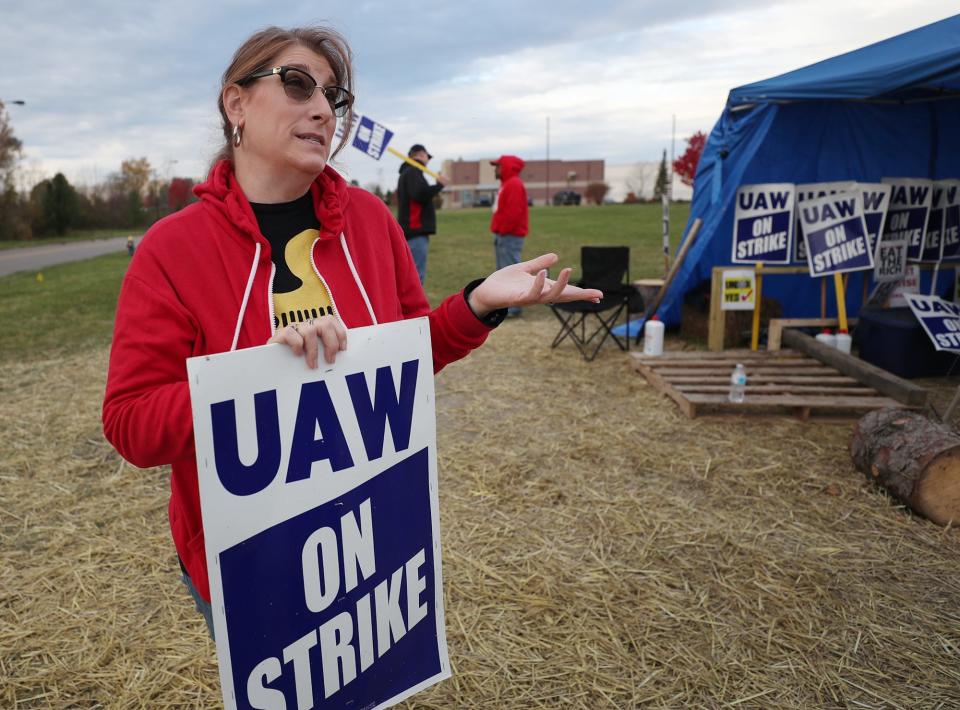
Personal beliefs about abortion play out at the ballot box
Voters who back Issue 1 say it’s about taking back control of personal decisions from the government, which is predominantly Republican and anti-abortion.
"(Abortion) should be between the doctor and the woman," said Ashley Harp, 33, of Evanston, a Cincinnati neighborhood.
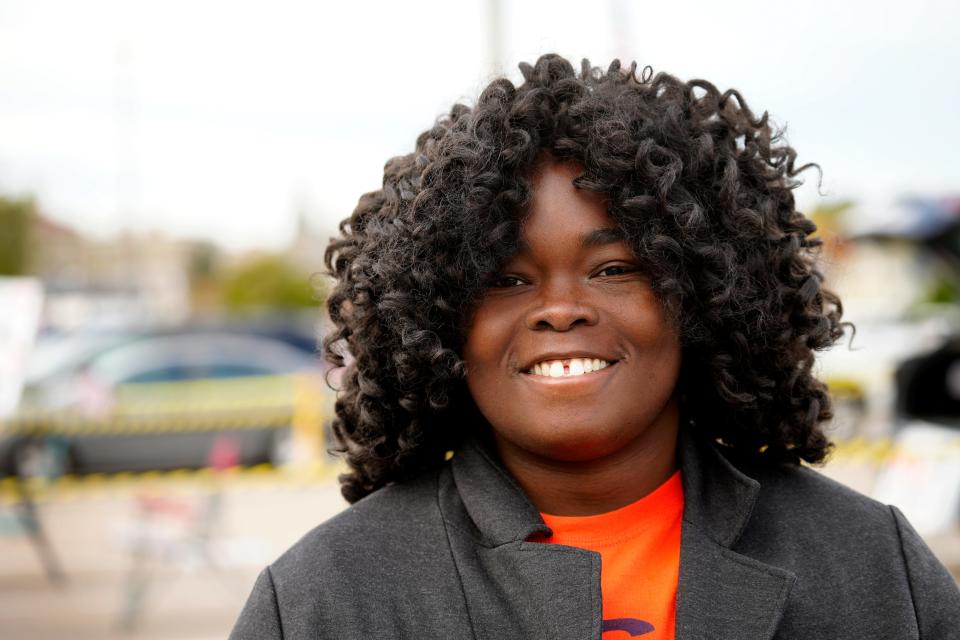
"Issue 1 really puts the power back into the people's hands," said Cuyahoga Falls resident Ainslee Johnson-Brown, an independent who works with Unite for Reproductive and Gender Equality (URGE). Johnson-Brown said Issue 1 will ensure she and her wife have access to options like in vitro fertilization and surrogacy in the future.
"For us, this is about more than just abortion access," Johnson-Brown said. "When we talk about family planning, we also have to talk about where our forever home is. Especially if Issue 1 doesn't pass, a lot of what we have planned for ourselves in Ohio isn't possible.”
Amanda and Okunzuwa Uwague, of Columbus, agreed that decisions about reproductive health should be made by families.
“We had a lot of infertility and pregnancy struggles," Amanda Uwague said. “We have two kids. We’ve been in positions where we’ve had possible difficult decisions and we don’t really need somebody taking those decisions away from us.”
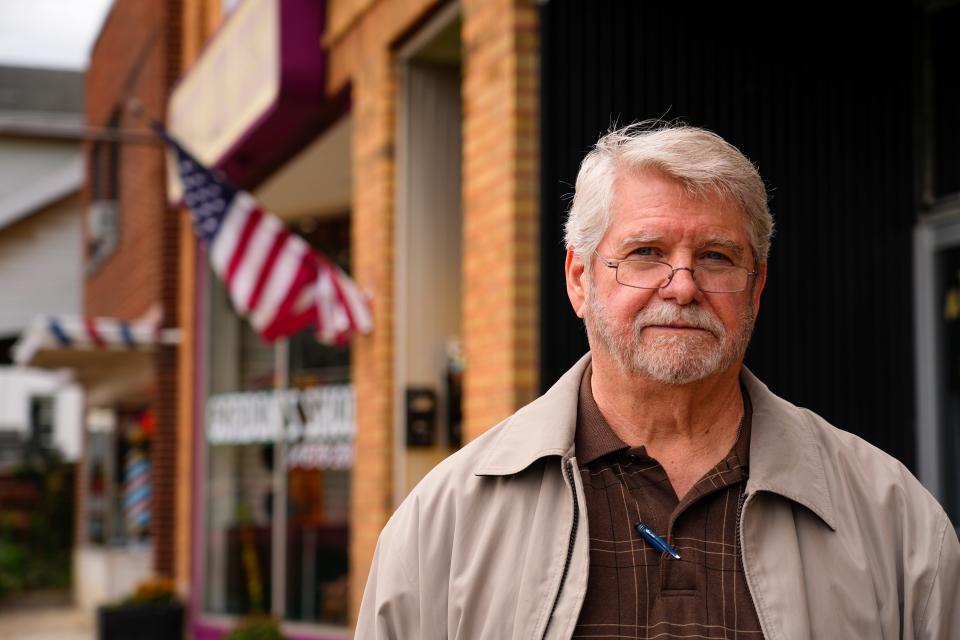
Some voters who oppose Issue 1 say abortion is morally wrong. Jim Horstman, a 73-year-old from Springfield, said "abortion's murder to me."
Sue Glenn, who lives on the East Side of Columbus, worries that abortion has become a form of birth control. “I know there are women in positions and they’re in a terrible place, but what about all those little babies?"
Nykki Dunson, of Lewis Center, said abortion is not justified, even in cases of rape or incest.
"We have so many people in our church that have so much regret from abortions and the guilt that they have from that," Dunson said. "Unfortunately, there's going to be horrible situations all the time, and abortion is not the way to take care of that issue. When a woman's life's in danger, I don't even think it's called abortion. It's a whole different medical issue. And most women are always going to put their babies first."
Marijuana legalization: Criminal justice drives support for Ohio Issue 2
Unlike many Ohioans, Charvis Brantley doesn’t have Issue 1 at the forefront of his mind. But the 48-year-old independent from Akron feels strongly that the state should legalize marijuana.
Brantley, a recovering alcoholic, said he suspects more people in his neighborhood have been locked up for marijuana busts than for alcohol-related offenses. He contends legalization could keep people safe from street drugs that are laced with other substances, such as fentanyl.
"For some reason, we keep demonizing marijuana in Ohio, and I just want to know why,” Brantley said. “Is it because − to be honest with you − suburban kids are doing it? Because they didn't care that urban kids are doing it. They don't care what's going on. We're the ones being prosecuted, but they're the ones who're doing it.”
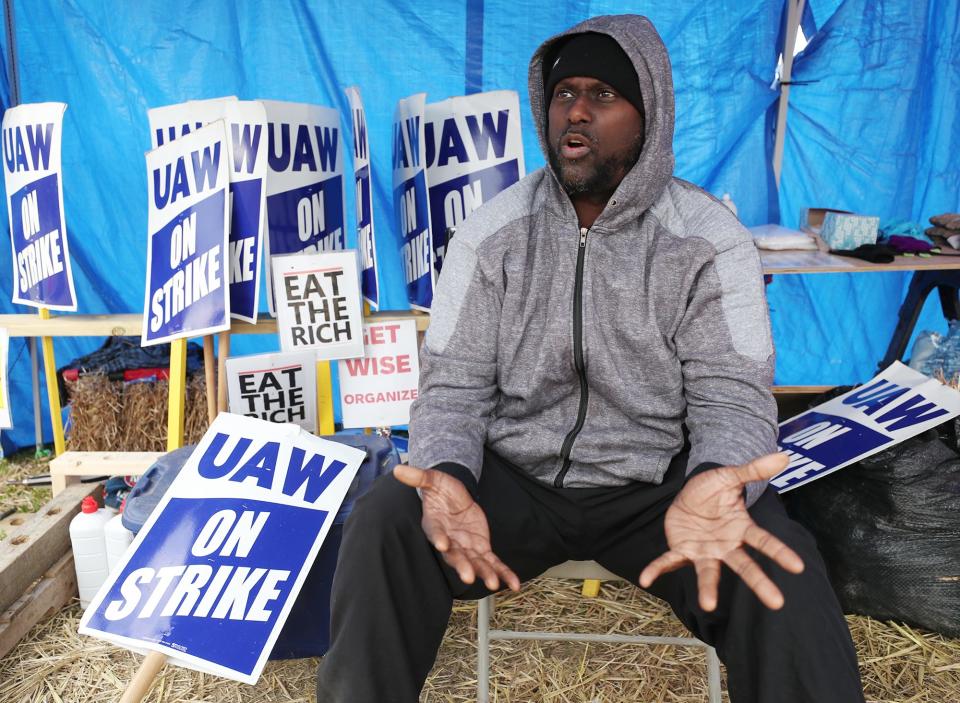
The criminal justice system is a key reason why Johnson-Brown voted in favor of Issue 2.
"There's not a person that I know that doesn't know someone that has been incarcerated in a state facility at some point in their life here, and a lot of that is related to really low-level drug charges," Johnson-Brown said. "There's no point in taking away someone's rights for something that is widely accepted − at least accepted in half the country, at this point."
Issue 2 does not include automatic expungements for marijuana convictions or offenses, nor does it contain any provisions that address sentencing for those crimes. Instead, it creates a social equity and jobs program that aims to support prospective business owners who have been disproportionately affected by the enforcement of marijuana laws.
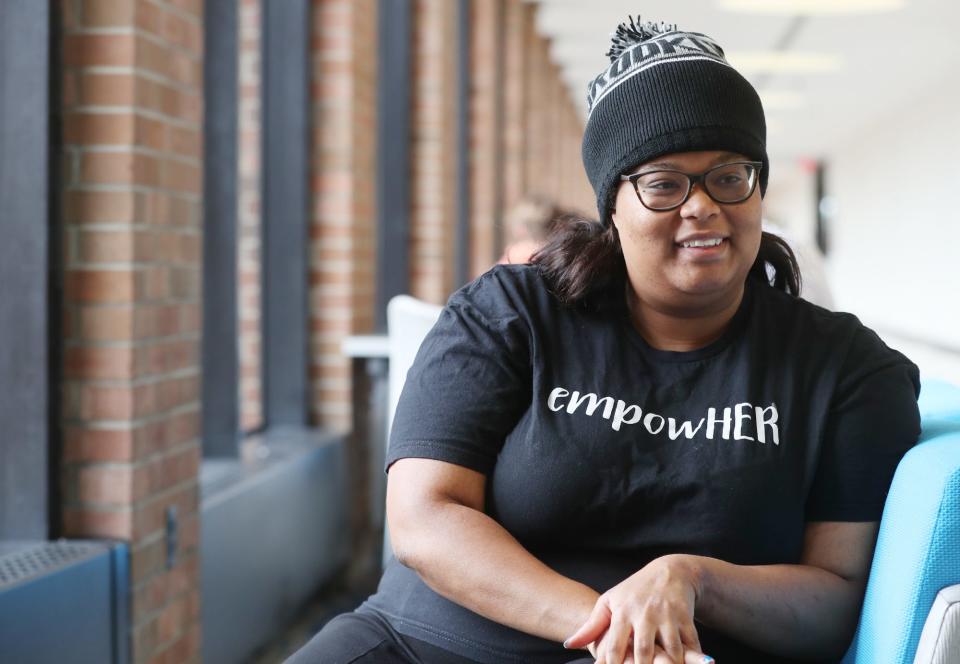
Does marijuana have positive effects? Voters divided
Support for marijuana legalization doesn't fall neatly along partisan lines. A recent Baldwin Wallace University poll found 66% of Democrats, 50% of Republicans and 59% of independents plan to vote for Issue 2, and interviews with voters underscored that nuance. Some Republicans who are staunchly opposed to Issue 1 said they don't see a problem with adult-use marijuana.
But not everyone wants to see Issue 2 pass. Autumn Jacobs, who’s studying criminology at Kent State University, plans to pursue a career in law enforcement and opposes Issue 2 because “people get in trouble” for marijuana use.
Robyn Harp, a 70-year-old in Columbus, worries legal marijuana could make the roads less safe.
“You have Moms Against Drunk Driving for people that drink and drive,” Harp said. “What’s going to happen in the future, if for some reason, someone is on this marijuana, and they start having accidents? Do we go through this again, only without alcohol?”
Arthur Martin, a retired Baptist pastor in Stark County, said he used to minister to people who used marijuana, and the outcomes weren’t positive.
“They all wound up in serious trouble mentally, and everything else,” Martin said. “The devil’s tricky. He don’t take you to the bottom to start with. He just gets you a step in there, and then it’s two steps.”
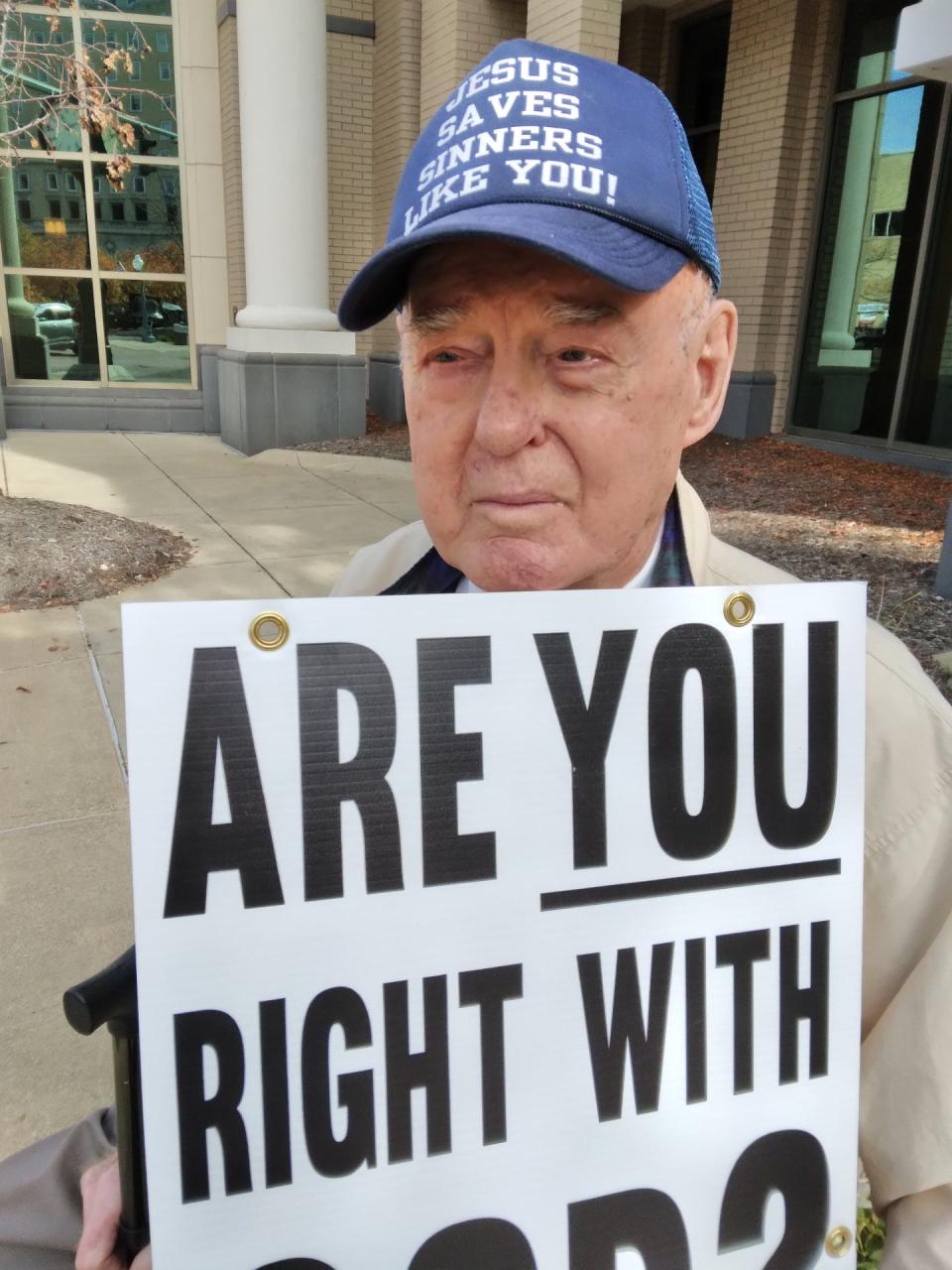
At the same time, some find cannabis to be healing for their medical ailments. Ohio legalized medical marijuana in 2016, but patients often complain about the prices and bureaucracy of maintaining their registration.
Megan Minamyer, a 36-year-old Arcanum resident, uses cannabis to relieve flare-ups from her multiple sclerosis. While she has a medical marijuana card, she believes an adult-use program would make it easier for her and others with medical concerns to access products.
John Paul Reichley, a Navy veteran who lives in Columbus, agreed, saying he’ll make fewer trips to Michigan if Issue 2 passes.
"It costs money. There's a cash outlay to get a medical marijuana card. There's no free medical marijuana card to help somebody who's like me," Reichley said. "I'm a disabled veteran. I avail myself of the ability to not have to take opioids."
USA TODAY Network Ohio includes the Columbus Dispatch, Cincinnati Enquirer, Akron Beacon Journal and 18 other affiliated news organizations across Ohio.
This article originally appeared on The Columbus Dispatch: Ohio 2023 election: How voters view abortion, marijuana

